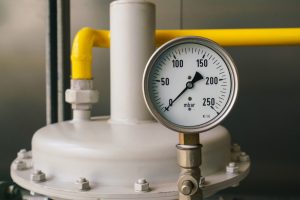 There may have been some point during your homeownership when you were told that your boiler is being impacted by scaling. Maybe you’re unsure of whether to take this problem seriously or not. We’re here to tell you that yes, you should. Scaling in boilers is actually really common, and also really serious. It’s caused by high levels of minerals in the water—namely, calcium and magnesium—that get left behind in the boiler tank and tubes. This can lead to a reduction in heat as well as a loud banging noise in some instances.
There may have been some point during your homeownership when you were told that your boiler is being impacted by scaling. Maybe you’re unsure of whether to take this problem seriously or not. We’re here to tell you that yes, you should. Scaling in boilers is actually really common, and also really serious. It’s caused by high levels of minerals in the water—namely, calcium and magnesium—that get left behind in the boiler tank and tubes. This can lead to a reduction in heat as well as a loud banging noise in some instances.
You may be wondering how this is dangerous for your boiler. Well, a boiler that’s suffering from scaling is in danger of breaking down entirely and/or leaking water into your home. Both of these would require prompt boiler services in Union, NJ. But we’d like to help you avoid this issue to begin with, if possible.
First, You Should Know what Boiler Scale Looks Like
Have you ever notice white or yellowish buildup around a faucet or showerhead? This is the result of hard water, and its deposits are known as scale. Now, picture this same scaling inside the tank of your boiler, or the pipes that move hot water around your home.
At first, small pieces of granular deposits may slowly collect at the bottom of the boiler tank. With time, however, these deposits coat the tank and the tubes, adding an extra layer to the inside. The longer boiler scale goes on, the harder it is to remove.
The Damage This Does to the Tank
Boiler scale can do significant damage to the tank of your hot water boiler. As sediment settles at the bottom of the tank, it becomes more difficult for the burners to heat the water. This is why you might notice a boiler with scaling doesn’t keep you as warm as it once did.
As heat attempts to reach the water, bubbles might escape through the tank, rattling the sediment. This sediment can then wear down the lining of the tank, allowing for corrosion to happen much sooner than it would have otherwise.
…And the Damage It Does to the Tubes
The same scaling that accumulates in the tank will also damage the tubes and pipes that enable water to move from the boiler itself to the rooms of your home. This scaling acts as an insulator that restricts heat from moving properly throughout your living space.
This will eventually cause the tubing to overheat and crack. Or, it can build up to the extent that it completely blocks water from moving through the pipes, which causes problems for the entire boiler system.
Preventing Scale from Hurting Your Boiler
The best way to control scaling is to prevent it from occurring altogether, by ensuring that the water entering the system is as clean as possible. A qualified technician will let you know all of the ways to get demineralized feedwater going into your boiler.
There are systems that connect directly to the boiler, chemicals that can be added to it, or even whole-house water softeners that protect the water quality and piping throughout your home.
Established in 1912, Max Sr & Paul Schoenwalder Plumbing, Heating, and Air Conditioning, A Corp. has been providing customers throughout Union, NJ and beyond with exceptional heating services. Contact us today!
